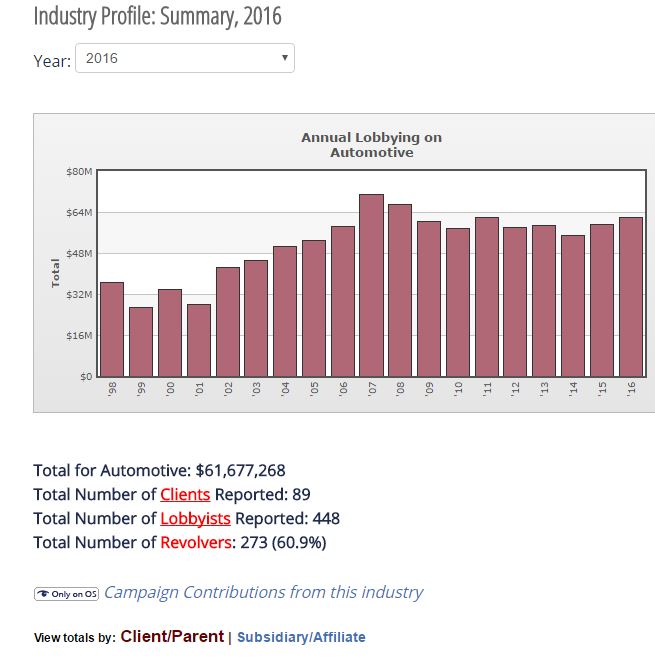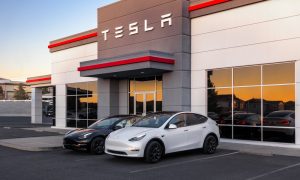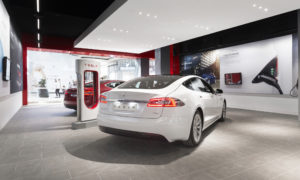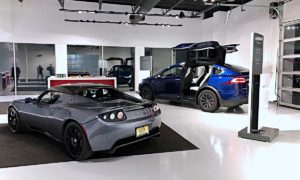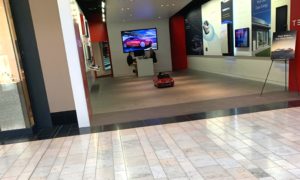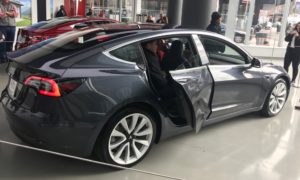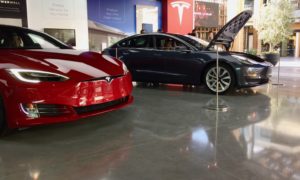News
Indiana is back with another bill to ban Tesla’s direct sales model
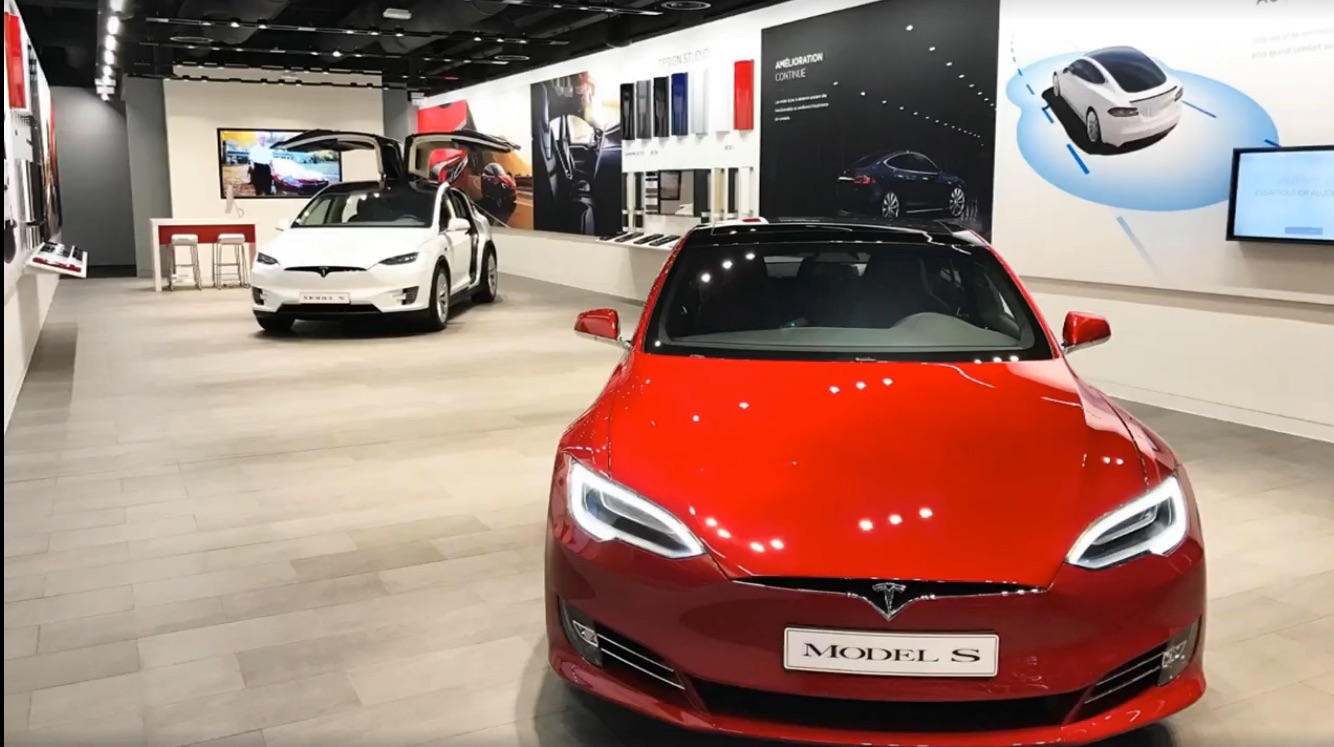
If a proposed Indiana House bill is passed, manufacturers of “all-electric vehicles” would be banned from selling directly to consumers. The bill does not direct any specific language to Tesla Motors, Inc., but the innovative vehicle manufacturer is clearly the target of the legislation. Add Indiana into the mix of Tesla’s long list of court cases pending in which car dealers and automakers claim that they, as intermediaries, have sole right to sell vehicles to consumers.
Indiana House Bill 1592
Indiana automakers have traditionally used an established network of dealers who negotiate with buyers and provide automotive repair services. These automakers are part of a large umbrella of politically influential groups. They argue that Tesla’s model allows the company to evade laws, which confers an unfair advantage to Tesla and provides no accountability to its buyers.
Here is the synopsis of the Indiana House Bill 1592.
Automobile sales requirements. Provides that a manufacturer may engage in sales directly to the public only if the manufacturer meets certain requirements. Provides that a manufacturer can no longer engage in sales directly to the public after the earlier of: (1) reaching 1,000 units in cumulative annual sales; or (2) six years after the initial dealer’s license is granted.
Additionally, Sec. 20. of the bill reads:
A manufacturer licensed under this article may engage in sales directly to the general public only if the manufacturer (1) has exclusively offered for sale to the general public in Indiana all-electric vehicles on a continuous basis since July 15, 2015; (2) has never offered for sale to the general public in Indiana a line make of new motor vehicles through a franchised motor vehicle dealer.
Tesla is the only vehicle manufacturer which meets these particular criteria. Tesla sells its electric vehicles directly to consumers, while other manufacturers like General Motors, Ford, Subaru, and Toyota sell through Indiana dealerships. If passed, the bill would severely limit Tesla’s ability as a manufacturer to sell to the public:
Subject to the expiration schedule under IC 9-32-11-12.5, a manufacturer can no longer sell to the public after the earlier of the following: (1) A manufacturer described in this section reaches cumulative annual sales of one thousand (1,000) units to the general public from its licensed location in Indiana.
The author of the bill, Rep. Edmond Soliday, a Republican, has authored or co-authored several transportation bills, including transportation infrastructure funding, automated traffic enforcement, vehicle excise taxes, and department of transportation property matters. He defeated Midwest Environmental Systems CEO Pamela Fish in the November, 2016 elections. House Bill 1592 will be heard by the Roads and Transportation committee.
Last year another Republican, Rep. Kevin Mahan, supported a similar bill that would have forced manufacturers to sell their vehicles through a dealership. “For the average Hoosier, purchasing an automobile can be daunting and a big investment,” Mahan said. “A greater variety of vehicles are now available and can be brought directly to consumers virtually anywhere in the country. In the event of a recall or malfunction, consumers should be protected.”
Arguments against limiting manufacturer sales
Tesla Motors, Inc.’s Vice President of Corporate and Business Development Diarmuid O’Connell testified against House Bill 1592. “Tesla does not operate through some kind of loophole in Indiana law,” O’Connell said. “The current law is explicit in Tesla’s ability to sell directly and, as written today, it is not broken.” O’Connell’s remarks point to current Indiana law in which an auto manufacturer is not allowed to open a store in direct competition with an affiliated franchised dealer. Tesla has no direct competition franchise dealers in Indiana and has always sold directly to consumers. O’Connell added that Tesla’s presence in Indiana has “brought only good to the consumer welfare without harming anyone — not even the dealers.”
At stake is more than a corporate tug-of-war between automakers. Tesla’s electric vehicles are at the heart of that vision for tomorrow’s consumer domestic transportation and will continue to flourish and change the way automakers in the U.S. and abroad have conducted business as usual.
If “you’re interested in promoting competition and free market principles … you recognize direct distribution, particularly for a company like Tesla, is critically important,” said Todd Maron, the company’s chief counsel, during remarks at a 2016 Federal Trade Commission event. “We don’t simply believe that [electric vehicles] represent a nice complement to gas powered cars. We believe that it’s imperative that they are replaced entirely by electric vehicles.” An end to franchising laws would advance that goal and place low-mileage gas-powered vehicles at risk of obsolescence.
Arguments in favor of limiting manufacturer sales
A coalition of free market groups, led by Americans for Tax Reform President Grover Norquist, argues that ending or restricting automotive franchising would actually decrease consumer choice. Norquist believes that reducing competition among dealers selling the same car brands hurts consumers. Franchising laws were actually created by anti-trust efforts at the Federal Trade Commission and “they sustain market competition rather than undermine it.” Last year, the group accused federal regulators of ignoring evidence that would undermine proposed measures governing automotive sales that stand to enrich what they saw as a “politically-powerful company” at consumers’ expense.
Harry Tepe, owner of Tom Tepe Auto Center in Milan, Indiana, supports legislation that would further protect consumers in the auto industry. “We just want to make sure there are protections in place for the consumers,” Tepe said. “The issue at hand is that the loophole is still open that allows any manufacturer to come in and market a vehicle and sell directly to the public without having any protections in place for the consumer.” He takes the position that dealerships are responsible for being a liaison between the consumer and the manufacturer.
Lobbying on behalf of the automotive industry
Proponents and opponents of Indiana House Bill 1592 are, in many cases, influenced by a powerful automotive lobby in the U.S. Automotive industry lobbyists use a combination of strategies to gain influence. They do a lot of research, sit down with lawmakers one-on-one, deliver messages in writing, and call Congressmen and members of the administration on the phone.
“If you’re a big company, like a carmaker, and you’re lobbying lawmakers, you’re almost like a pro sports team. You want to get the big names, the most talented, most knowledgeable people,” said David Levinthal, communications director for the Center for Responsive Politics, a non-partisan research group that tracks the money spent in the U.S. political system and its effect on elections and public policy. “So, these big companies, in the major industries, hire former Congressmen and top Congressional staffers and other high-ranking government officials to be their lobbyists, because those are the folks who know who all the other major players are and they know the ways of Washington.”
News
Tesla UK sales see 14% year-over-year rebound in June: SMMT data
The SMMT stated that Tesla sales grew 14% year-over-year to 7,719 units in June 2025.

Tesla’s sales in the United Kingdom rose in June, climbing 14% year-over-year to 7,719 units, as per data from the Society of Motor Manufacturers and Traders (SMMT). The spike in the company’s sales coincided with the first deliveries of the updated Model Y last month.
Model Y deliveries support Tesla’s UK recovery
Tesla’s June performance marked one of its strongest months in the UK so far this year, with new Model Y deliveries contributing significantly to the company’s momentum.
While the SMMT listed Tesla with 7,719 deliveries in June, independent data from New AutoMotive suggested that the electric vehicle maker registered 7,891 units during the month instead. However, year-to-date figures for Tesla remain 2% down compared to 2024, as per a report from Reuters.
While Tesla made a strong showing in June, rivals are also growing. Chinese automaker BYD saw UK sales rise nearly fourfold to 2,498 units, while Ford posted the highest EV growth among major automakers, with a more than fourfold increase in the first half of 2025.
Overall, the UK’s battery electric vehicle (BEV) demand surged 39% to to 47,354 units last month, helping push total new car sales in the UK to 191,316 units, up 6.7% from the same period in 2024.
EV adoption accelerates, but concerns linger
June marked the best month for UK car sales since 2019, though the SMMT cautioned that growth in the electric vehicle sector remains heavily dependent on discounting and support programs. Still, one in four new vehicle buyers in June chose a battery electric vehicle.
SMMT Chief Executive Mike Hawes noted that despite strong BEV demand, sales levels are still below regulatory targets. “Further growth in sales, and the sector will rely on increased and improved charging facilities to boost mainstream electric vehicle adoption,” Hawes stated.
Also taking effect this week was a new US-UK trade deal, which lowers tariffs on UK car exports to the United States from 27.5% to 10%. The agreement could benefit UK-based EV producers aiming to expand across the country.
News
Tesla Model 3 ranks as the safest new car in Europe for 2025, per Euro NCAP tests
Despite being on the market longer than many of its rivals, the Tesla Model 3 continues to set the bar for vehicle safety.

The Tesla Model 3 has been named the safest new car on sale in 2025, according to the latest results from the Euro NCAP. Among 20 newly tested vehicles, the Model 3 emerged at the top of the list, scoring an impressive 359 out of 400 possible points across all major safety categories.
Tesla Model 3’s safety systems
Despite being on the market longer than many of its rivals, the Tesla Model 3 continues to set the bar for vehicle safety. Under Euro NCAP’s stricter 2025 testing protocols, the electric sedan earned 90% for adult occupant protection, 93% for child occupant protection, 89% for pedestrian protection, and 87% for its Safety Assist systems.
The updated Model 3 received particular praise for its advanced driver assistance features, including Tesla’s autonomous emergency braking (AEB) system, which performed well across various test scenarios. Its Intelligent Speed Assistance and child presence detection system were cited as noteworthy features as well, as per a WhatCar report.
Other notable safety features include the Model 3’s pedestrian-friendly pop-up hood and robust crash protection for both front and side collisions. Euro NCAP also highlighted the Model 3’s ability to detect vulnerable road users during complex maneuvers, such as turning across oncoming traffic.
Euro NCAP’s Autopilot caution
While the Model 3’s safety scores were impressive across the board, Euro NCAP did raise concerns about driver expectations of Tesla’s Autopilot system. The organization warned that some owners may overestimate the system’s capabilities, potentially leading to misuse or inattention behind the wheel. Even so, the Model 3 remained the highest-scoring vehicle tested under Euro NCAP’s updated criteria this year.
The Euro NCAP’s concerns are also quite interesting because Tesla’s Full Self-Driving (FSD) Supervised, which is arguably the company’s most robust safety suite, is not allowed for public rollout in Europe yet. FSD Supervised would allow the Model 3 to navigate inner city streets with only minimal human supervision.
Other top scorers included the Volkswagen ID.7, Polestar 3, and Geely EX5, but none matched the Model 3’s total score or consistency across categories. A total of 14 out of 20 newly tested cars earned five stars, while several models, including the Kia EV3, MG ZS, and Renault 5, fell short of the top rating.
Elon Musk
Why Tesla’s Q3 could be one of its biggest quarters in history
Tesla could stand to benefit from the removal of the $7,500 EV tax credit at the end of Q3.

Tesla has gotten off to a slow start in 2025, as the first half of the year has not been one to remember from a delivery perspective.
However, Q3 could end up being one of the best the company has had in history, with the United States potentially being a major contributor to what might reverse a slow start to the year.
Earlier today, the United States’ House of Representatives officially passed President Trump’s “Big Beautiful Bill,” after it made its way through the Senate earlier this week. The bill will head to President Trump, as he looks to sign it before his July 4 deadline.
The Bill will effectively bring closure to the $7,500 EV tax credit, which will end on September 30, 2025. This means, over the next three months in the United States, those who are looking to buy an EV will have their last chance to take advantage of the credit. EVs will then be, for most people, $7,500 more expensive, in essence.
The tax credit is available to any single filer who makes under $150,000 per year, $225,000 a year to a head of household, and $300,000 to couples filing jointly.
Ending the tax credit was expected with the Trump administration, as his policies have leaned significantly toward reliance on fossil fuels, ending what he calls an “EV mandate.” He has used this phrase several times in disagreements with Tesla CEO Elon Musk.
Nevertheless, those who have been on the fence about buying a Tesla, or any EV, for that matter, will have some decisions to make in the next three months. While all companies will stand to benefit from this time crunch, Tesla could be the true winner because of its sheer volume.
If things are done correctly, meaning if Tesla can also offer incentives like 0% APR, special pricing on leasing or financing, or other advantages (like free Red, White, and Blue for a short period of time in celebration of Independence Day), it could see some real volume in sales this quarter.
You can now buy a Tesla in Red, White, and Blue for free until July 14 https://t.co/iAwhaRFOH0
— TESLARATI (@Teslarati) July 3, 2025
Tesla is just a shade under 721,000 deliveries for the year, so it’s on pace for roughly 1.4 million for 2025. This would be a decrease from the 1.8 million cars it delivered in each of the last two years. Traditionally, the second half of the year has produced Tesla’s strongest quarters. Its top three quarters in terms of deliveries are Q4 2024 with 495,570 vehicles, Q4 2023 with 484,507 vehicles, and Q3 2024 with 462,890 vehicles.
-

 Elon Musk5 days ago
Elon Musk5 days agoTesla investors will be shocked by Jim Cramer’s latest assessment
-

 News1 week ago
News1 week agoTesla Robotaxi’s biggest challenge seems to be this one thing
-

 Elon Musk2 weeks ago
Elon Musk2 weeks agoFirst Look at Tesla’s Robotaxi App: features, design, and more
-

 News2 weeks ago
News2 weeks agoWatch Tesla’s first driverless public Robotaxi rides in Texas
-

 News2 weeks ago
News2 weeks agoWatch the first true Tesla Robotaxi intervention by safety monitor
-
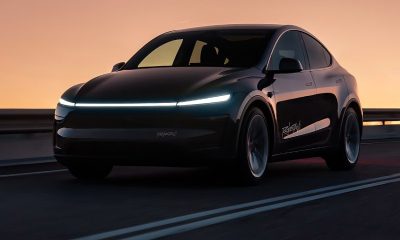
 Elon Musk2 weeks ago
Elon Musk2 weeks agoTesla officially launches Robotaxi service with no driver
-

 Elon Musk1 week ago
Elon Musk1 week agoA Tesla just delivered itself to a customer autonomously, Elon Musk confirms
-

 News2 weeks ago
News2 weeks agoTesla Robotaxi rollout proves that Elon Musk still delivers, even if it’s late

